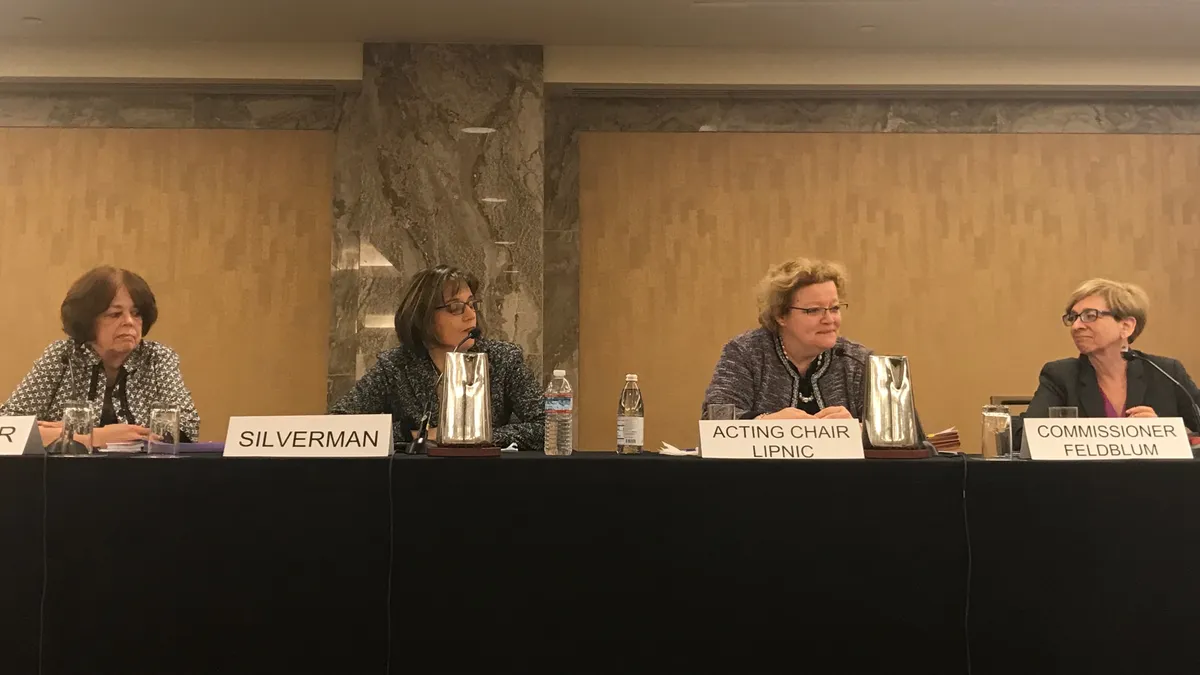Dive Brief
- Employers paid about $505 million to resolve U.S. Equal Employment Opportunity Commission (EEOC) charges in fiscal year 2018, according to the commission's latest Performance and Accountability Report, published Nov. 15.
- The total dollar amount is up from the estimated $484 million reported in the 2017 edition of the report. EEOC filed a total of 199 merit lawsuits in 2018, resolving 141 of them.
- EEOC also reported continued progress in reducing its case backlog, reporting a 19.5% reduction in its private sector charge backlog and a 19.4% reduction in the backlog for federal employee appeals. The commission said the launch of its online inquiry and appointment system in 2018 led to a 30% increase in inquiries.
Dive Insight
EEOC is capping off what may be remembered as a historic year for the commission, if not for the issue of workplace discrimination generally — and for workplace harassment in particular. Just over a year has passed since the October 2017 allegations published against filmmaker Harvey Weinstein, spurring a wave of similar accusations against high-profile men in the business world, along with the near-synonymous #MeToo movement.
Sexual harassment isn't the only issue tracked by EEOC, but it has become one of the commission's most active areas of enforcement this year. The number of sex-harassment suits filed by EEOC jumped more than 50% year-over-year in 2018, while the number of sex-harassment charges filed with the commission rose 12% over that same period.
At the American Bar Association Section of Labor and Employment Law's annual conference on Nov. 8, EEOC acting chair Victoria Lipnic and Commissioner Chai Feldblum spoke to attendees about the commission's thoughts on how to prevent and handle accusations of workplace harassment. Both cited the involvement of leadership as an important goal, but Feldblum in particular stressed that employers should be more transparent about informing potential victims about the results of investigations into harassment complaints.
"It would make a big difference to the person who brought the complaint if you tell the person at the end, 'here's what we found and here's what we did,'" Feldblum said. "I understand there's this default culture of privacy that HR might have, but think about the impact when you tell someone, 'yeah, we've looked into it, we've taken care of it,' and the person can't see anything about what's happening."
But there are myriad other employment discrimination issues for HR to address. Increasingly, ageism has become a talking point as new technologies enter the workforce and as an increasing number of baby boomers entire the later phase of their careers. Discrimination cases involving gender, sexual orientation, race, religion, disability and other characteristics also remain active components of employment law.
Sexual orientation and gender identity are two particular areas of legal interest moving forward as federal courts remain divided on the question of whether either characteristic is protected under Title VII of the Civil Rights Act of 1964. EEOC has maintained that this is the case, but the U.S. Department of Justice has contested both points; a similar circuit split may require the U.S. Supreme Court's intervention.














